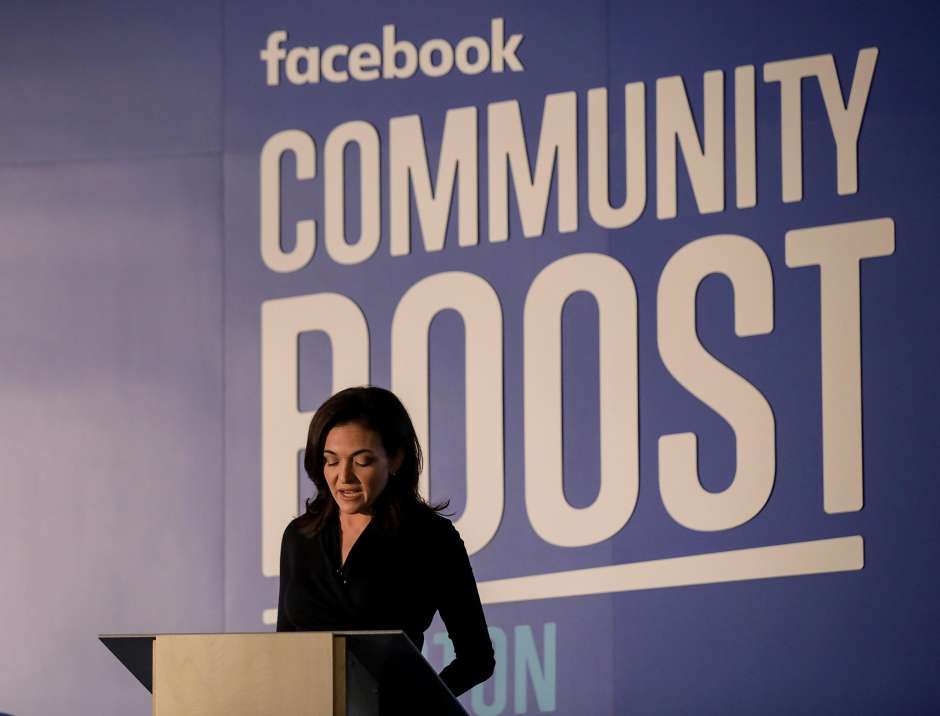
President Trump recently weighed in on the debate, saying that the big American firms are in “a very antitrust situation.” Some think tanks like the Open Markets Institute have called for Facebook to be broken up, spinning out its Messenger, Instagram, and WhatsApp services into independent firms, reports Martin Giles in MIT Technology Review from San Francisco.
Sheryl Sandberg, Facebook’s chief operating officer, has been testifying Wednesday alongside Twitter CEO Jack Dorsey before the Senate Intelligence Committee. The ostensible topic is how prepared internet companies are for dealing with attempts to interfere with the midterm elections. Dorsey will also speak before a House committee about his company’s approach to moderating posts, amid swirling charges that a company based in San Francisco might have a built-in bias against conservative voices.
These aren’t the first congressional hearings about the role of social networks in society, and they won’t be the last. Undergoing a sense of hopeless dependence: We’re so addicted to Facebook, Twitter and the like that it’s up to the government to save us from ourselves.
Leading tech companies
This week leading Silicon Valley technology companies have appeared on Capitol Hill. Twitter CEO Jack Dorsey, Facebook COO Sheryl Sandberg, and a Google representative (lawmakers want Alphabet CEO Larry Page, the company wants to send lawyer Kent Walker) answered questions from various members of Congress about bias, artificial intelligence, whether these mammoth companies should continue to be the dominant communication platforms for most Americans( and the rest of the World). Here are some of the main themes that have been discussed according to editor in chief Martin Giles(se down under):
Get ready for atomic radio
The US Army is building drones that never need to land
Google released the first bilingual AI assistant
Venezuela’s new cryptocurrency doesn’t seem to exist
Physicists hack the human visual system to create “ghost images”
Theme: Antitrust
Key question: Why shouldn’t you be broken up?

Huge Tech Influence
The stately owned Norwegian Banks Investment Management is investing 227 billion kroner(approx 22 billion American dollars)in Apple, Amazon, Microsoft, Alphabet and Facebook. This is a 72 billion NOK increase from 2016. Source: Norges Bank. The total Norwegian Oil Revenue Fund is amounting 8700 billion kroner invested in thousands of companies world wide.
The economic clout of the tech giants—and its implications for other areas of their influence—has sparked considerable debate already this year. Critics say the firms’ vise-like grip on markets such as online advertising and online search harms competition.
The tech companies are likely to point out that the services they provide are free or incredibly cheap. And they will argue this is evidence they aren’t harming consumers—a key test for US antitrust policy. However, both the US Department of Justice and the Federal Trade Commission have already signaled they’re going to be scrutinizing the giants more closely, and they are going to be listening closely to what the firms’ executives say in Congress this week. Europe has already taken a tougher position, fining Google $5 billion earlier this year in an antitrust ruling the company is appealing.
Possible Political bias
Key question: How can social-media platforms ensure they’re distributing accurate and truthful information instead of stories that are predisposed toward a particular ideology? This is about getting social-media users out of the “filter bubble” and ensuring that insular communities aren’t reinforcing skewed viewpoints by seeing only news that conforms to their current beliefs. But here’s where it gets tricky, as one person’s “accurate and truthful” is another person’s “fake news.” Look for conservative members of Congress to address allegations of anti-conservative bias directly with both Sandberg and Dorsey.
Impact on our lives
Artificial intelligence is being used to help make ever more decisions, from identifying potential medical treatments for patients to helping police determine where to deploy officers. And the big tech companies are in the vanguard of firms developing the algorithms that are going to have a huge impact on our lives. The danger is that they could embed hidden biases that influence the results served up.
This issue will be fresh in politicians’ minds following a recent episode in which some lawmakers were mistaken for criminals in a trial conducted by the Electronic Frontier Foundation that used Amazon’s Rekognition image-analysis AI. There should be some tough questions at this week’s hearings about how the big tech firms intend to guard against bias, and to what extent they will allow their algorithms to be inspected for evidence of unfairness. Separate from the bias debate, Google could also face questions about its stance on working with the military on AI applications—a subject that has stirred considerable controversy inside the companies, writes Giles
AI and fake news
Key question: AI-created “deepfakes” can trick your eyes and ears into thinking politicians did or said something that never happened. How can your company help users identify what is real and what is not?
Background: Generative adversarial networks, or GANs, and other advanced AI techniques can create simulated video and audio that seem eerily real. If it’s done well, the resulting object can put words into politician’s mouths or “show” them doing deeds they never did.
While the cut and thrust of tomorrow’s hearings will focus on these and other specific issues, the fundamental question here is how to address the broader threat that technology poses to democracy. As we pointed out in our most recent issue, AI, and especially applications like GANs and deep learning, are changing politics in unpredictable and potentially disastrous ways.
Technology—and the companies that create it—must be part of the solution, but what’s really needed is a deeper societal discussion of how we should prepare ourselves for a world in which truth and freedom aren’t guaranteed to triumph. Repeatedly grilling the giants of Silicon Valley won’t be enough to solve democracy’s ills, writes Martin Giles.
Carbon-free energy
California advances an ambitious climate policy that should be a model for the world. The state is on the verge of passing a rule requiring 100 per cent of its electricity to come from carbon-free sources in 2045. Danny Cullenward, an energy economist and lawyer at the Carnegie Insitution for Science, sais this is the most important climate law in american history according to MIT Media Lab. California will be the first clean energy state in America in 2045.
Sources for this article:
Article By Martin Giles an Francisco Chief of MIT Technology Review. Other American Sources: San Francisco Chronicle, Wall Street Journal. Martin Giles San Francisco Bureau Chief is the San Francisco bureau chief of MIT Technology Review, where he follos the huge tech companies in America. MIT Media Lab.




